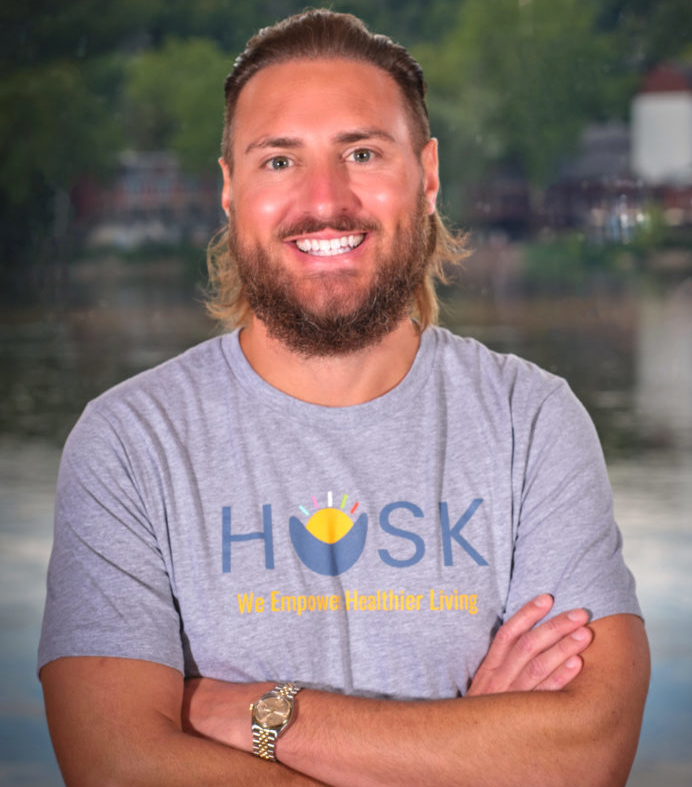GlobalFit started 30 years ago as a “discount gym network,” per current CEO Tony Frick. But over the years, as concepts like burnout became more mainstream, fitness has come to include paying attention to nutrition and mental health as well as working out. Accordingly, since joining in 2017, Frick has been helping the company expand in tele-nutrition, tele-mental health, wellness rewards and digital fitness as it also expanded its gym network.
This fall, Wayne-based GlobalFit officially rebranded to wellness technology company Husk. Its core offering is developing “sustainable wellness programs” for clients ranging from small companies to insurers Independence Blue Cross and Aetna. Husk work with these companies to connect their employees to preventative benefits like mental health therapists, registered dietitians and fitness options.
Frick said the company believes cost and access are the biggest barriers to wellness, so Husk has been reworking its offerings to make seeing a care provider as affordable and convenient as possible.
“What we’ve done is really combine our wellness services,” he said, and “integrate them into folks lives through the combination of our clinicians and our technology.”
Husk now counts around 100 employees and will continue hiring, including clinicians, as well as expand into areas like physical therapy and financial wellness. The CEO attributes the company’s growth to its new offerings: In addition to the changing meaning of “fitness” overall, there’s been an evolution in “workplace wellness,” where employers are encouraging employees to take advantage of preventative offerings.
“Our messaging and our value proposition of low-cost, high-value, high-outcome, preventative wellness benefits, resonates with Fortune 500 companies all the way down to startups that are looking to address the needs of their contemporary workforce, but in the most cost cost effective manner possible,” said Frick.
In his five years with Husk, Frick said it’s been “powerful to see” that a decades-old company can reimagine itself in a relatively short period of time.
“We have leaders in our organization that are managing tons of people and leading new P&Ls and bringing us into new markets that weren’t even born when Husk was founded, and that to me is super powerful to see,” he said. “Folks that have taken a business that had plateaued in some respects and now injected new life into it, began to drive new innovation and really address concerns that are relevant for them.”
Sarah Huffman is a 2022-2024 corps member for Report for America, an initiative of The Groundtruth Project that pairs young journalists with local newsrooms. This position is supported by the Lenfest Institute for Journalism.Join our growing Slack community
Join 5,000 tech professionals and entrepreneurs in our community Slack today!
Donate to the Journalism Fund
Your support powers our independent journalism. Unlike most business-media outlets, we don’t have a paywall. Instead, we count on your personal and organizational contributions.

National AI safety group and CHIPS for America at risk with latest Trump administration firings

Immigration-focused AI chatbot wins $2,500 from Temple University to go from idea to action

The good news hiding in Philly’s 2024 venture capital slowdown


